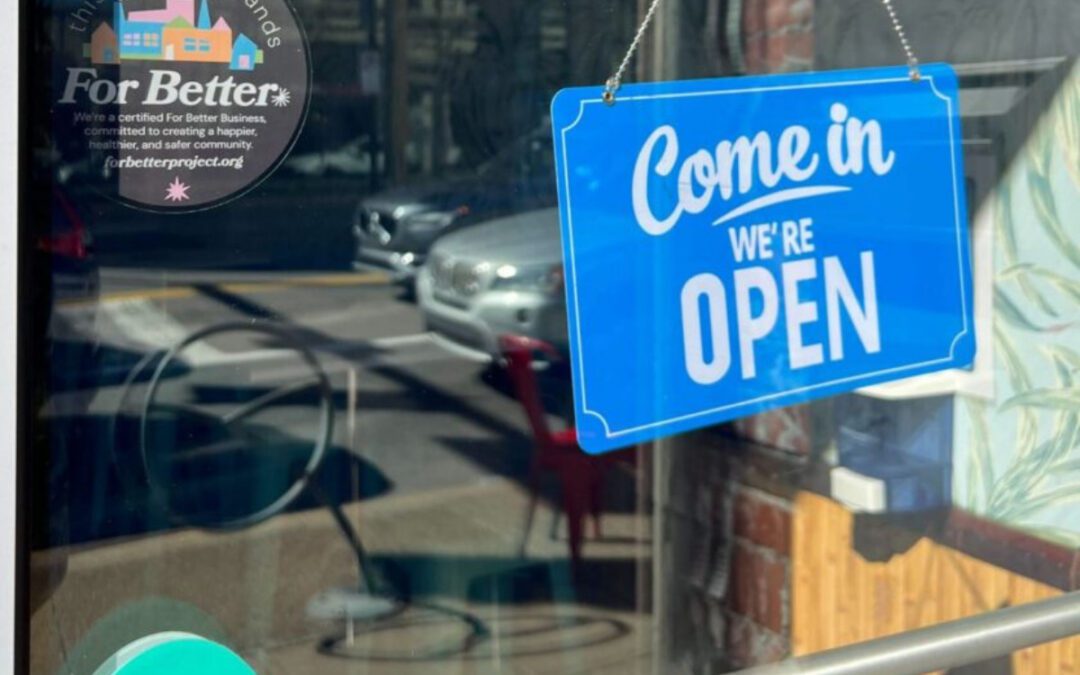
Dr. Nike Mourikes says women have a right to making their own decisions for their own set of circumstances. Photo courtesy Free and Just
It’s been three years since the United States Supreme Court made a landmark decision and overturned Roe v. Wade, ending a federal right to abortion care, turning the power to regulate or ban the procedure over to individual states. That forced Megan Kling to leave Wisconsin for health care when her baby was not compatible with life.
In 2023, Megan and her husband Sam were excited to be having their third child. But at 22 weeks, an ultrasound reflected their worst fears.
“Our baby had bilateral renal agenesis, and because I was 22 weeks pregnant by the time we received a confirmed diagnosis, it was illegal for my doctors to help me,” Megan recalled. “I was forced to flee my home state of Wisconsin in order to access care.”
Bilateral renal agenesis is a rare condition where both kidneys fail to develop in a fetus, leading to the absence of both kidneys at birth. This condition is typically incompatible with life, and affected infants usually do not survive long after birth. According to Nationwide Children’s, one of the nation’s largest pediatric hospitals, the condition is usually found between 18 and 22 weeks of pregnancy.
Following the 2022 Supreme Court decision in Dobbs v. Jackson Women’s Health Organization, any abortion ban that had been in place prior to 1973—when Roe v. Wade was decided—kicked back into effect in the states. In Wisconsin, that meant a 20-week abortion ban was again the law, with only an exception to save the life of the pregnant person.
A September 2023 Dane County Circuit Court ruling reversed the ban. An appeal of that ruling is now pending in the Wisconsin Supreme Court.
Megan said her journey illustrates that abortion bans don’t just affect “‘other people”’—they affect us all. And while she never expected to be an advocate for this type of health care, she now knows it’s a necessity to send a message to lawmakers.
“The women of Wisconsin deserve better than this—so get the hell out of our doctor’s office because pregnancy is too complex to legislate,” Megan said. “ Please allow women to seek care when they need it the most because abortion restrictions can impact anyone.”
Paying the price
Megan, from the small village of Taylor, told her story in front of the state Capitol as part of an event with the organization Free and Just, to mark the third anniversary of the Dobbs decision.
Standing alongside Megan was Dr. Nike Mourikes, a Madison internal medicine specialist, who said “extremists” have forced their ideology into exam rooms, and “we have paid the price.”
“After three long years of politicians, judges, and the government interfering in health care, we need to bring these decisions back to where they belong: in the hands of patients and medical professionals,” Mourikes said.
In the Dobbs decision’s wake, Planned Parenthood had to stop providing abortion services in Wisconsin for a year and a half. They scrambled to help get women like Megan across state lines whenever abortion care was needed. Their predicaments were made worse by the legal uncertainty and lack of safe, local medical care.
Sydney Andersen, a government relations specialist for Planned Parenthood Advocates of Wisconsin, said her group is facing more challenges, as the budget reconciliation bill that’s now in the Senate includes a provision that prevents Planned Parenthood from accepting Medicaid coverage for low-income patients—even though the federal Medicaid funds are used for many forms of basic care but not for abortion.
“US House Republicans voted to cut Medicaid and ‘defund’ Planned Parenthood, putting nearly 200 health centers at risk of closing nationally, including numerous centers here in Wisconsin,” Andersen said. “I want to be clear: This is intentional and they won’t stop there.”
“Republicans have said the Dobbs decision was not the end. And today, we’re seeing exactly what they meant. Anti-abortion lawmakers are willing to throw our most vulnerable members of the community to the wolves so they can eliminate access to safe abortions.”
Andersen explained that more than 1 million patients across the United States could lose their access to birth control, wellness exams, vaccines, STI testing, and cancer screenings, including over 50,000 patients in Wisconsin, if the reconciliation bill passes.
Three years post-Roe, Lucy Ripp, communications director at A Better Wisconsin Together, said Wisconsinites have made it clear time and again that they support safe and legal abortion access, so it’s frustrating that Republicans “are still obstructing a path to protecting and expanding abortion access in Wisconsin.” Ripp urged Republicans to listen to their consituents.
Megan said her journey illustrates that abortion bans don’t just affect “other people”—they affect us all. And while she never expected to be an advocate for this type of health care, she now knows it’s a necessity to send a message to lawmakers.
“The women of Wisconsin deserve better than this—so get the hell out of our doctor’s office because pregnancy is too complex to legislate,” Megan said. “ Please allow women to seek care when they need it the most because abortion restrictions can impact anyone.”
Support Our Cause
Thank you for taking the time to read our work. Before you go, we hope you'll consider supporting our values-driven journalism, which has always strived to make clear what's really at stake for Wisconsinites and our future.
Since day one, our goal here at UpNorthNews has always been to empower people across the state with fact-based news and information. We believe that when people are armed with knowledge about what's happening in their local, state, and federal governments—including who is working on their behalf and who is actively trying to block efforts aimed at improving the daily lives of Wisconsin families—they will be inspired to become civically engaged.


Wisconsin lawmakers deadlocked over data center regulation
As data center development continues to expand across Wisconsin, local communities have raised concerns over energy and water demands. But state...

Milwaukee Bucks Marques Johnson, Doc Rivers finalists for the basketball hall of fame
ORLANDO, FL − Milwaukee Bucks legend Marques Johnson and current head coach Doc Rivers were named finalists for the Naismith Basketball Hall of Fame...

Growing the Wisconsin economy? Missy Hughes has a plan for that
The former leader of the state’s economic development agency is now running for governor. With seven candidates seeking the Democratic nomination in...

Here’s your ‘Do Something!’ calendar for February 13-19
Your weekly guide to Wisconsin political events, protests, advocacy opportunities, and ways to take action statewide–Friday, Feb. 13 through...





